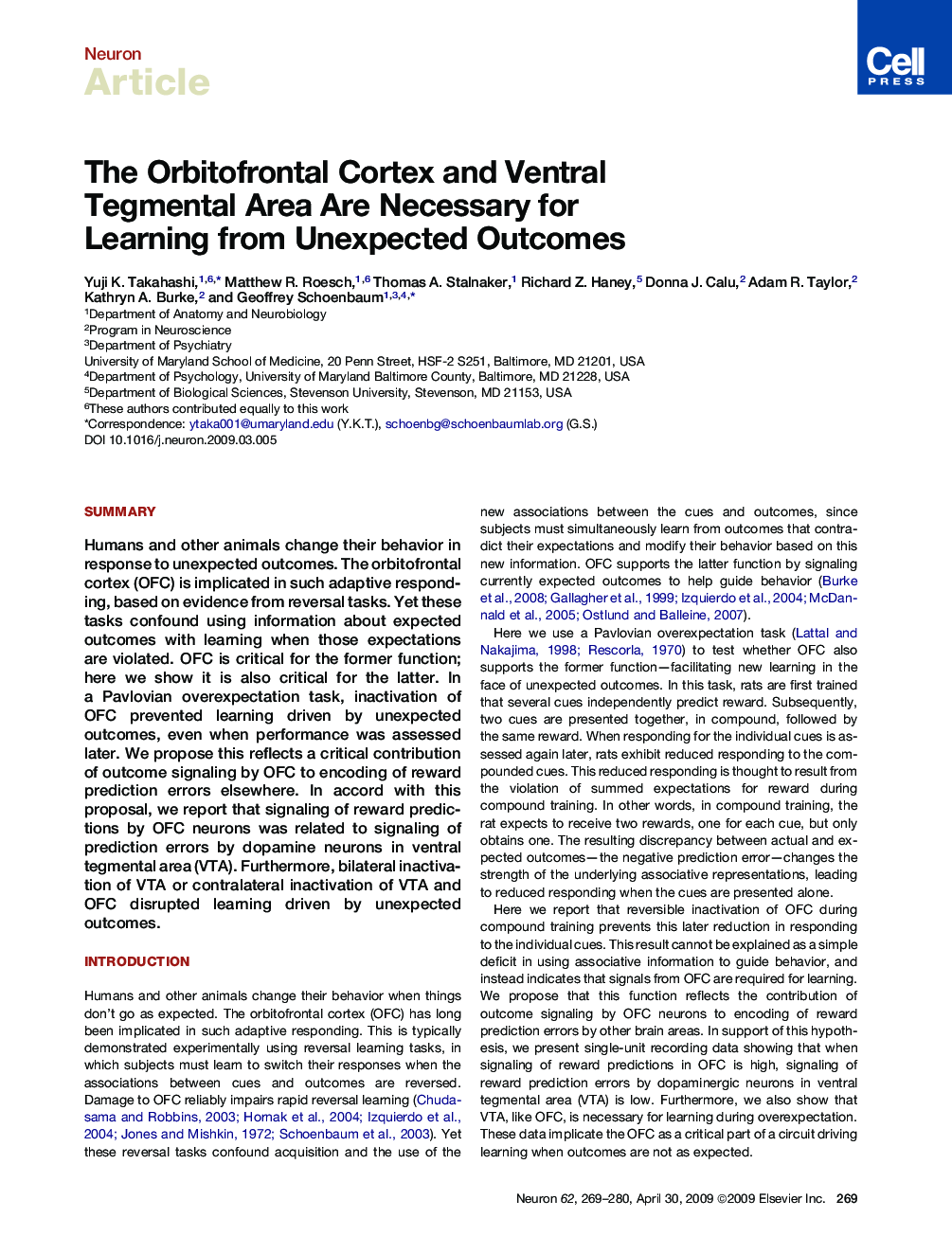| Article ID | Journal | Published Year | Pages | File Type |
|---|---|---|---|---|
| 4322090 | Neuron | 2009 | 12 Pages |
SummaryHumans and other animals change their behavior in response to unexpected outcomes. The orbitofrontal cortex (OFC) is implicated in such adaptive responding, based on evidence from reversal tasks. Yet these tasks confound using information about expected outcomes with learning when those expectations are violated. OFC is critical for the former function; here we show it is also critical for the latter. In a Pavlovian overexpectation task, inactivation of OFC prevented learning driven by unexpected outcomes, even when performance was assessed later. We propose this reflects a critical contribution of outcome signaling by OFC to encoding of reward prediction errors elsewhere. In accord with this proposal, we report that signaling of reward predictions by OFC neurons was related to signaling of prediction errors by dopamine neurons in ventral tegmental area (VTA). Furthermore, bilateral inactivation of VTA or contralateral inactivation of VTA and OFC disrupted learning driven by unexpected outcomes.
